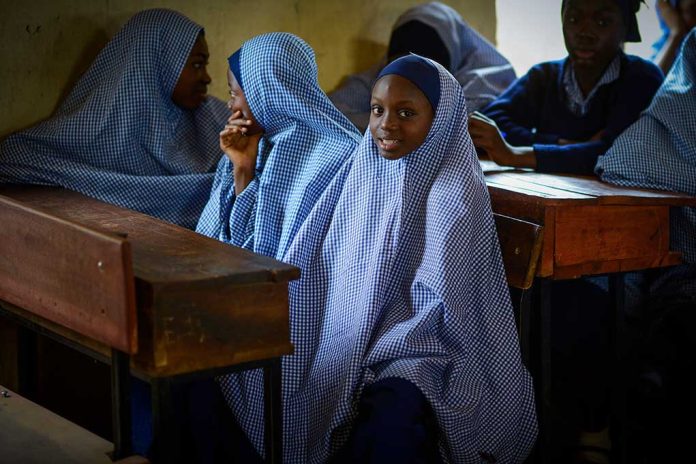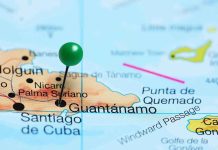
The Taliban’s recent ban on women working in NGOs has sparked international outrage, marking another step in restricting women’s freedoms in Afghanistan.
At a Glance
- The Taliban ordered NGOs to suspend employing women over hijab compliance.
- The ban is part of broader restrictions against women since August 2021.
- The UN and global communities are condemning the ban.
- Women’s exclusion impacts humanitarian aid delivery in Afghanistan.
- Taliban-Iran alliance may indicate regional political shifts.
The Ban and Its Immediate Consequences
The Taliban government has directed all foreign and domestic NGOs in Afghanistan to cease employing women, alleging improper adherence to Islamic dress codes by some female staff. This move adds to a list of measures aimed at curtailing women’s rights since the Taliban’s return to power in August 2021. The Economy Minister, Qari Din Mohammed Hanif, mandated stringent compliance, threatening NGOs with the loss of operational licenses should they defy the order.
This directive follows the recent prohibition on female university students, triggering protests across the nation. Security forces in Herat responded to these demonstrations with water cannons, as participants chanted, “Education is our right” and “Disgraceful!” Meanwhile, Taliban spokesperson Zabihullah Mujahid announced additional measures restricting building designs to prevent public visibility of women, citing concerns over potential “obscene acts.”
The Taliban say they will close all national and foreign non-governmental groups in Afghanistan employing women.https://t.co/AxQ4RzkqsT
— euronews (@euronews) December 31, 2024
Global Reactions and Domestic Impact
The UN Human Rights Chief, Volker Türk, has condemned the ban, urging a reversal. He stated, “No country can progress – politically, economically or socially – while excluding half of its population from public life.”
This embargo on women’s employment within NGOs significantly hampers humanitarian operations, crucial to a nation where over half the population subsists in poverty.
Maliha Niazai, an NGO worker, shares the fear and uncertainty this ban instills, noting, “It’s a heartbreaking announcement.” The prohibition jeopardizes livelihoods, threatening economic sustenance and family support for many women.
Political and Geopolitical Implications
Beyond humanitarian concerns, the Taliban’s actions are indicative of evolving regional dynamics. Reports suggest fledgling alliances, notably with Iran, hinting at a shift in geopolitical relations. This new rapport may influence the Taliban’s regional stance, including potential military collaboration against Israel through agents like Hezbollah.
The enforcement of these policies by the Taliban belies their claims that Islamic law upholds rights for men and women equally within Afghanistan. As these developments unfold, the global community’s watchful eyes remain on Afghanistan, poised for potential interventions or diplomatic measures.





